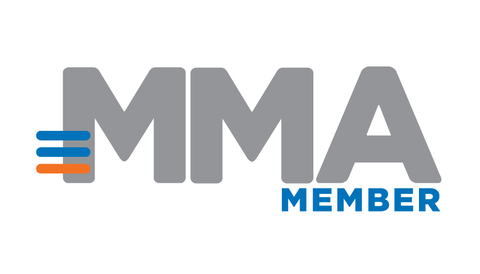October 12, 2006

Opening the Door to the Mobile Internet
Bringing Down Walled Gardens
By Alexa Raad, VP of Marketing and Business Development, dotMobi
Since the emergence of the Internet in the early 1990s, the ultimate promise of mobile phones has been anytime, anywhere access to rich interactive content and real-time communication. In short, all the features of an Internet-equipped PC combined with voice/messaging functionality in a tiny portable package. But as we all know, the graphics-rich, multimedia browsing experience that people associate with surfing the Web is still nearly exclusively a PC or laptop-only experience. But this no longer needs to be the case with the .mobi domain, the first ever industry-supported domain name for the mobile Internet.
With more than 165,000 .mobi domains registered since launching in May 2006, including some of the biggest brands in the world, dotMobi is creating a link between mobile operators, Internet content providers and the millions of mobile users seeking a consistent, reliable and enjoyable Internet experience. The domain, and the rationale behind its creation and guidelines, is supported by some of the largest mobile operators, handset manufacturers, content companies and mobile organizations in the world, including Microsoft, Google, Vodafone, Telefonica, TIM, T Mobile, Samsung, Nokia and Syniverse, and has the support of major mobile associations such as GSMA, CTIA, MMA and more.
Recently, however, dotMobi was criticized in the media by a spokesperson at Verizon. The source sought for these comments was an Associate General Counsel whose responsibilities are not content nor growth of a mobile channel, but rather protection of Verizon's IP and trademark -- in other words, minimizing risk and ensuring the status quo.
The reaction caused no surprise to industry experts or to executives from dotMobi, who claimed, there are a few operators, Verizon being only one example, that have simply not embraced the idea that their customers should be able to freely access mobile Internet content outside their walled gardens. Efforts to delay the improvement and availability of open, reliable and uncontrolled content to mobile users are something that unsettles many mobile operators.
As a collective group of mobile experts and industry leaders for a better mobile Internet experience, we know that traditional gatekeepers hold initial resistance to initiatives like dotMobi. Specifically, many players try to keep the status quo if they feel an open Internet and consumer choice represents a risk to their present interests.
Recently a colleague brought to our attention a 1995 article, which first appeared in Wired magazine. The article points out that “on-line experience”, then in infancy, was once controlled by the then power-player AOL. AOL as a service provider was a closed and proprietary network. We invite those from the mobile community to read the piece (http://www.wired.com/wired/archive/3.09/aol_pr.html) and draw their own parallels between 2006 and the proprietary walled gardens from a decade ago. Below is a quote from AOL founder Steve Case, who once said,
"The success of pay-per-view has been dismal. So the cable phenomenon is really a phenomenon that's been driven by simple, affordable bundled pricing. Why would it be any different in the online world?"
Prophetic words back in 1995. Oh how far we’ve come.
By creating a registry service to the .mobi domain, all stakeholders in the mobile Internet value chain—end-users, networks, device manufacturers, software companies, content and service providers—will have a reliable, recognizable and common mechanism for the mobile Internet experience. Consumers will immediately know that if a site has a .mobi address it will be optimized for, and reliably work on, a mobile phone. And just as importantly, service providers and content developers will have a clear framework within which to reach out and serve mobile users.
One of the most important benefits of the dotMobi initiative is that it will enhance and improve the ease of use of mobile Internet services through discoverability, predictability and reliability. Since the .mobi domain makes it easier for search engines to crawl and catalog mobile sites, users will be able to find content from sites they know and trust, creating a mobile Internet experience that retains the look and feel of PC-based browsing.
Like the early days of the Internet, .mobi is a chance for companies of all sizes to stake out territory in a fast-growing market and embrace more profitable business models. This means content providers no longer have to give away a major share of their revenue to be included in the menu of options selected by the operator for the customers. For consumers, they finally will have the freedom of accessing Web sites easily and cost-effectively on mobile devices.
After all, history is a great teacher, in the end, open, standards-based non-proprietary platforms are always preferable, and consumer is always king.<?xml:namespace prefix = o ns = "urn:schemas-microsoft-com:office:office" />

